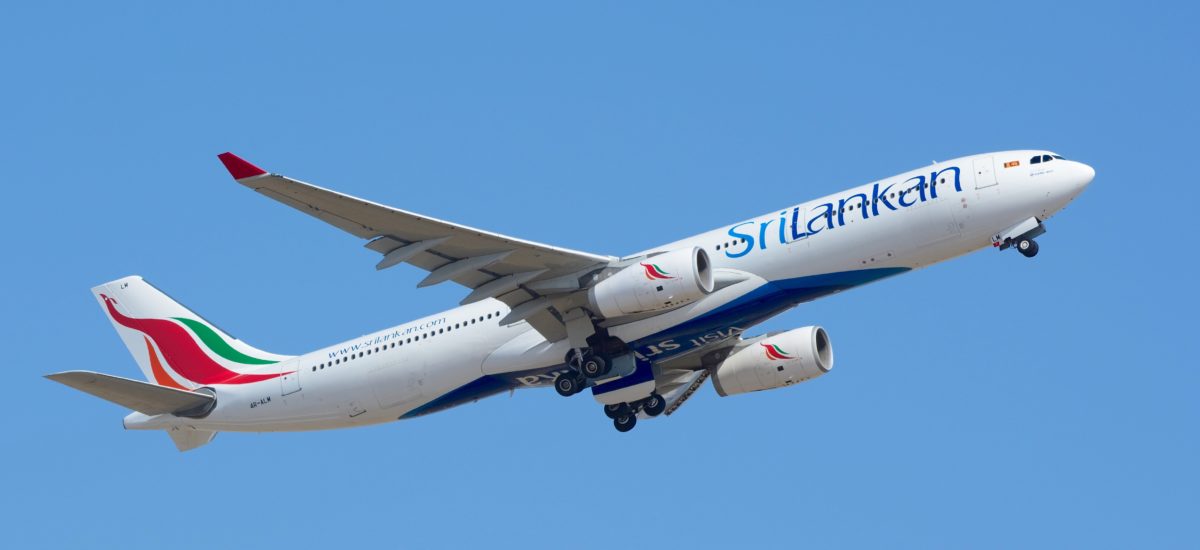Groundviews is sharing this story as it highlights the national carrier’s inability to accommodate the needs of wheelchair users. Sri Lankan Airlines has been languished in debt for years, most recently reporting a net loss of Rs. 16.33 billion rupees (USD 112 million) for the year to March 31. However, this does not excuse the fact that Sri Lankan Airlines failed to deliver on a service, even after the person concerned had paid and booked for using it. This points to wider problems pervading the national airline, as it looks for outside investors.
Following an injury, J was given medical advice to minimise the time he spent on his feet, as he was due to travel abroad. His doctor recommended he use airport wheelchair services, and so J called the airline and made the necessary arrangements. For his travel through both Malaysia and South Korea, he was offered a complimentary wheelchair service. However, for his departure from Bandaranaike International Airport (BIA), he was required to make a pre-payment and booking to access the wheelchair service. Appalling as it is that those who are wheelchair bound are asked to pay for assistance in our aspiring tourist-hotspot in the world, J booked and paid for the use of a wheelchair several days in advance of his flight.
As requested, my friend arrived at BIA and reported to the SriLankan Airlines office at the entrance of the airport. J found at least three other people also waiting to avail of wheelchair assistance. They appeared to be a visiting delegation of Buddhist clergy from East Asia. Naturally, they did not speak Sinhala, nor did they converse in English. As J awaited the arrival of his wheelchair, he heard the SriLankan Airlines officer on the phone to her colleagues, complaining about the foreigners in the room. Her precise words were ‘meygollonta mala illawuakwath therenney na.’ This roughly translates into ‘these people don’t understand a thing’. It is amusing that Sri Lankan Airlines staff at the international airport are blaming tourists for not being able to speak to them in Sinhala or English.
After about 20 minutes of waiting, it became clear to J that the difficulties in sourcing wheelchairs for the passengers were not being resolved. J had to keep reminding them to take some action as he did not want to miss the limited window for check-in. The staff made calls and informed the travellers that they were having trouble sourcing the stewards with the wheelchairs. Now, let me remind you that this wheelchair assistance had been pre-booked for this particular flight, ,and pre-paid as well. How could they be so woefully underprepared?
Out of fear of missing his flight, J was willing to cut his losses and offered to use his walking stick to make his way to check-in. The little bit of pressure helped, as some frantic calls were made, and the wheelchairs finally arrived. Yet, the farce that is Sri Lankan Airlines’ customer service was not quite over. Having finally mounted his wheelchair, it seemed to come as a surprise to the staff officer that he should have check-in baggage – even though it had been with him all the time. The officer then proceeded to ask him who would be taking the check-in baggage for him. When, confused, J responded that he did not have anyone to accompany him on to the plane, he received in retort ‘why didn’t you bring someone with you? Have you not done this before?’. At this juncture the author would like to point out that clearly it is important to never require wheelchair assistance at BIA, unless you can supply your own wheelchair escort!
Having established that there was no one J could turn to, the officer proceeded to tell him that he must then find a porter from inside to carry his luggage, as none were present at the entrance. J then inquired if he should step out of his wheelchair, walk into the airport, find a porter, and return outside to his wheelchair to be taken inside again? The ludicrousness of her suggestion seemed to have been driven home. But ten minutes later they had still not found a porter. At this point, J decided he would have to make his way through the airport on his own two feet. He did however have the presence of mind to ask for a note conceding that Sri Lankan Airlines were not in a position to provide him the service he had paid for. The staff refused to do this as well.
The situation now seemed quite desperate. At this point, my friend asked for the name of the officer who was enacting this fiasco, giving clear indication that he meant to take it up to higher authorities as a complaint. This is what changed the tide and brought results. With the threat of accountability lurking, the staff agreed to transport his bags themselves and take him in the wheelchair up to the plane. To his relief, J made his flight. But is this the state of service we must expect from our public enterprises?
Is this an isolated incident? Or do those foreign travellers requiring wheelchair assistance depart Sri Lanka with the sourest of aftertastes? Why is it that we must threaten repercussions to public officials in order to receive the services we have paid for? Hearing this story made me laugh at first. However, it is hoped that this tragicomedy that played out at the SriLankan Airlines office is taken seriously by the management, and that sufficient initiative is used to ensure that no other physically incapacitated person is subjected to such shoddy treatment.
If you enjoyed this post, you might find our previous post on Sri Lankan Airlines “Paying the price for last extravagance” and “The re-nationalisation of Sri Lankan Airlines and the follies of state enterprise” interesting.

